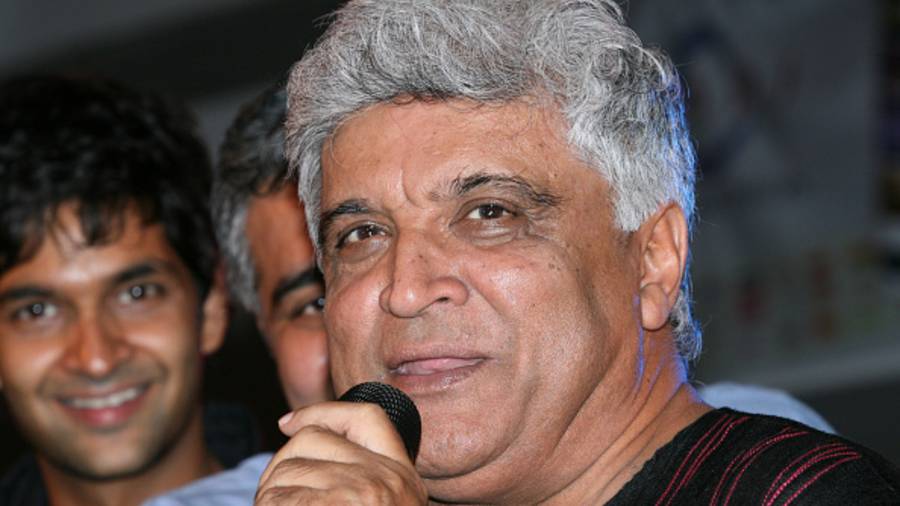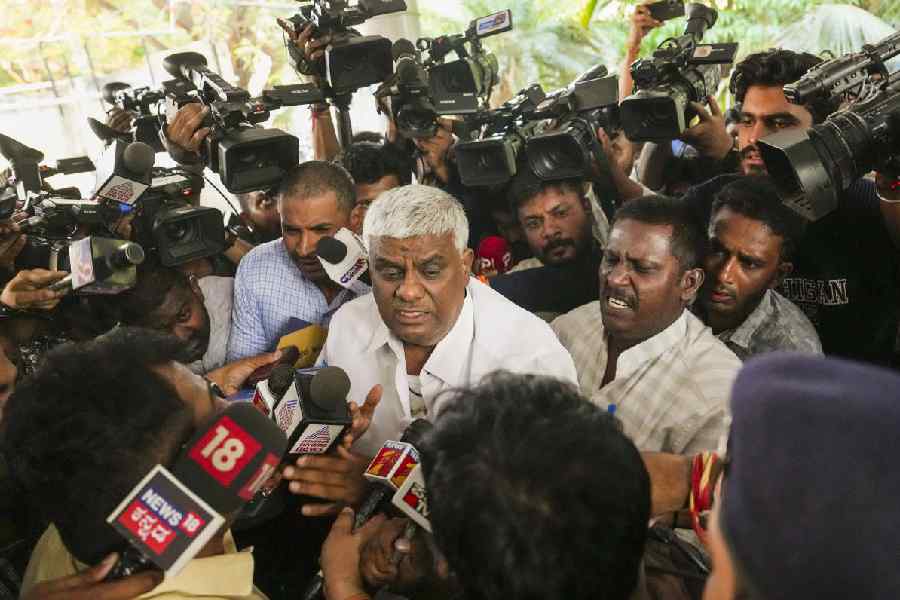When Javed Akhtar watched Ramprasad Ki Tehrvi, actor Seema Pahwa’s debut directorial, he was so impressed he called her over for dinner, along with her husband and fellow-actor Manoj Pahwa.
“I was clean bowled by her brilliant writing,” Javed later remarked. “Kya likha hai, kya direct kiya hai,” he cheered. “There is some exceptionally good work being done, writing kahan se kahan chali gayi hai,” he continued the shower of appreciation. “Paatal Lok kya likha hua hai. Scam 1992, kya baat hai. It’s not because she’s my daughter but I found the writing of Zoya’s Gully Boy absolutely brilliant. I’m awed by the writing of these films and series.”
Masterly writing made him pause and pose an honest question to himself: “When I see this kind of work, I ask myself, ‘Can I write like this?’ And I’m afraid the answer is not positive,” he chuckled.
With a veteran’s eye, Javed also made an interesting observation about what elevated the work of these younger writers. “The level of reality they have brought into the mainstream is outstanding.”
Realism in arthouse cinema is no big deal. “But to bring it into the mainstream is a great achievement. Whether on film or on OTT, they are for the mainstream audience,” he reflected. “And these writers have proved themselves.” Always rooting for his fraternity, Javed said, “I’m very sad and depressed when writers are not given their due credit.”
There was a time when Salim-Javed got not just unprecedented recognition but also hoardings as celebrity writers. But he would not take credit as the “first writers to get top billing”. “When Dhool Ka Phool (1959) released, the banner said, ‘BR Films presents Pandit Mukhram Sharma’s Dhool Ka Phool directed by Yash Chopra’. Pandit Sharma was a huge name much before us,” he placed on record. “In the 50s, he was the king. Yes, from the 70s to the 80s was our period, we got hoardings and banners.”
But the hard-won recognition came only after a series of hits like Andaz (1971), Seeta Aur Geeta (1972), Zanjeer (1973) and Haath Ki Safai (1974).
Javed put forth what had transpired backstage. “The ‘Kings of Story’ title was not our creation,” he said. “Producer Gulshan Rai’s publicity department, which was handled by Amarjeet (an ace at publicity design and campaign) decided to present us on banners with two crowns and the line, ‘Salim-Javed, the Kings of Story’. People started saying Salim and Javed call themselves kings but we hadn’t crowned ourselves, it was the publicity campaign of Deewaar that had created it.”
Today, Javed wants that kind of recognition for his fraternity. It’s relevant — while there’s a veteran who applauds and seeks acknowledgment for gifted, deserving writers, there are youngsters showing small-mindedness towards writer-colleagues. An example is the trailer of Taapsee Pannu’s latest thriller Haseen Dillruba, to stream on Netflix from July 2. With shots showing Taapsee as a voracious reader of Dinesh Pandit’s novels, producer Aanand Rai’s trailer puts the spotlight on its own writer Kanika Dhillon, giving her top billing over director Vinil Mathew.
Kanika is the writer of several films. She also happens to be married to Himanshu Sharma, the writer of many of Rai’s films. So when the trailer of Haseen Dillruba came out, a little-known Navjot Gulati made the low level, sexist comment that a writer has to perhaps be married to someone influential in a production house to get top billing.
Incidentally, Kangana’s camp had hit out at Taapsee for posing with a Dinesh Pandit book, calling her a cheap copy of Ms Ranaut, who had earlier posed with another Hindi author’s novel. Wonder if the camp feels sheepish now that it’s clear Taapsee’s pose was a part of the Haseen Dillruba publicity campaign.
But undoubtedly, whether it’s about two writers or two curly-haired actresses, the discourse seems to be sinking.
Bharathi S. Pradhan is a senior journalist and author










